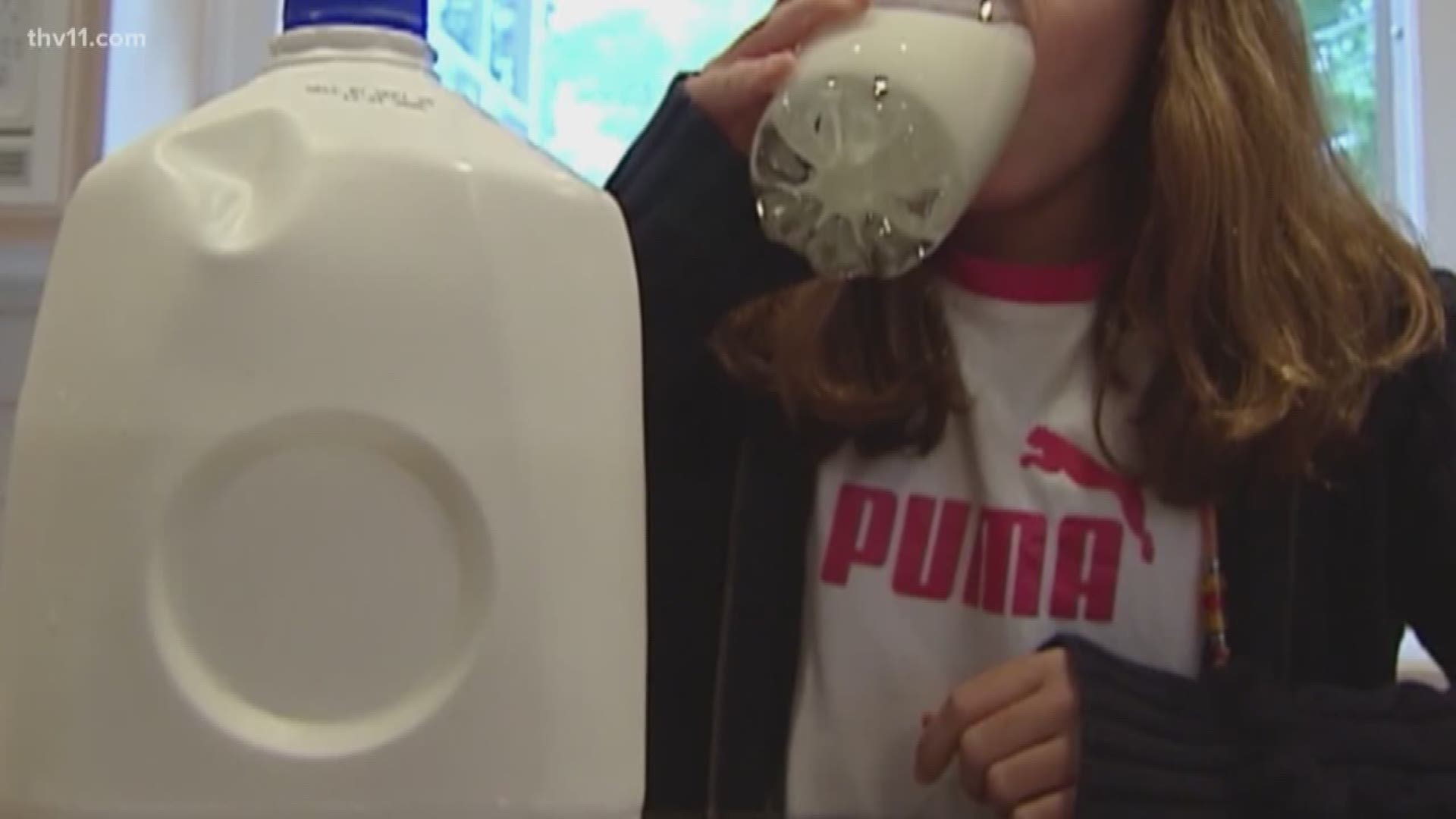Milk: It's a staple in the American diet. Billions consume it and it's required for brain development in babies.
But these days there are so many different kinds of milk, from whole to skim. It prompted a viewer to email our verify team.
Shirley Hendricks asks this:
"I would like to know if drinking 1%, 2% or whole milk will have any effect on cholesterol levels. Is one better than the others for cholesterol?"
Our expert, UAMS Director of Nutrition Services Tonya Johnson, has the answer.
"Yes it does -- whole milk is full of saturated fat. Saturated fat has a direct correlation with cholesterol, so the lower the percentage of the fat in the milk, the lower cholesterol level is," Johnson said.
She also verified that in an average 8 oz glass of whole milk there are approximately 34 milligrams of cholesterol. However, there are trace levels of cholesterol in a glass of skim milk, so she says there is a direct correlation between the milk's fat content and cholesterol levels.
If you are monitoring your cholesterol Johnson recommends skim milk, and clarifies that you will lose no nutritional benefits by doing so.
"The only difference is the fat, cholesterol and calories. We're still looking at the same amount of calcium, protein and the same vitamin content as a skim milk and the whole milk," she said.
So what did we verify?
If drinking 1 percent, 2 percent or whole milk has any effect on cholesterol levels -- the answer is yes, it does.
Whole milk contains much more saturated fat, and therefore cholesterol, than skim or 1 or 2 percent milk.
If you have something you'd like verified, no question or concern is too small. Or would you like to ask us a question about our coverage or a story you saw? It's simple, just email us at verify@thv11.com.

